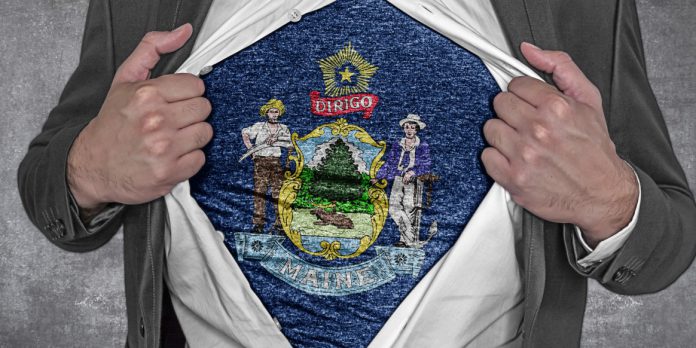Last week the Maine House of Representatives pulled the plug on a bill that would have legalized online casino gambling in the state.
LD1777, first introduced in 2023 and sponsored by Rep. Laura Supica, proposed to give the Wabanaki Nations tribe exclusive access to online casino operator licenses in Maine.
After initially falling short by three votes in the House the bill was put up for reconsideration when it once again met with rejection, going down by a five-vote margin in the House.
The bill faced opposition throughout the legislative process by those who believed it would hurt the state’s commercial casinos if they were excluded from the online casino market.
Maine Gambling Control Board (MGCB) Chairman Steve Silver was one of those who was against the bill and his testimony to the state’s Committee on Veterans and Legal Affairs, as well as an op-ed on the subject, can help piece together why LD1777 failed to succeed.
Cannibalization fears
In his testimony, Silver emphasized his support for the legalization of iGaming, however, he described the decision to cut out retail casinos from the bill as “ill-advised”.
Maine is currently home to the Oxford and Hollywood casinos and Silver feared that passing the bill as it stood at the time would have led to job losses at the casinos as well as a cut in tax revenue from the two operators.
Silver cited a study by the Maryland Lottery and Gaming Control Agency determined that the impact of legalizing iGaming on land-based casinos was a drop in revenue of 10%.
“In 2022, the casinos generated $68.2 million in tax revenue through slots and table games. The casinos also generated about $2 million in sales, hotel, beverage, and meal taxes. Yet, as it is currently written, LD 1777 will lead to dramatic cuts in that tax revenue with no plan for replacing the revenue lost by the recipients of that revenue,” Silver told the committee.
The proceeds of tax paid by the Oxford and Hollywood Casinos go to a range of state departments and charitable funds in Maine and Silver predicted that a 10% drop in revenue would lead to the Maine Department of Education losing out on over $2.4 million annually.
He also pointed out that the iGaming market does not create jobs as it involves the switching on of already built applications and therefore this would not offset the cost of job losses in the retail casino industry caused by a decrease in revenue.
iGaming spikes problem gambling
In his op-ed piece, Silver started by describing iGaming as a “highly addictive product” and he predicted that the legalization of iGaming would lead to an increase in problem gambling.
He cited the example of Connecticut that found calls to the state’s problem gambling hotline quadrupled in the three months following the legalization of iGaming.
Silver also urged legislators to reconsider the part of the bill that mandated just 1% of adjusted gross iGaming receipts to the Gambling Addiction Prevention and Treatment Fund given the probable increase in problem gambling cases.
“Since mobile sports betting launched in Maine in November, calls to the state helpline have jumped dramatically. For example, in January 2024, Maine had 71 calls for help – an increase of 133% from January 2023. Putting a blackjack or roulette table in everyone’s pockets will only exacerbate the problem,” added Silver in his Portland Press Herald opinion piece.
The MCGB chairman finished his testimony by restating his support for the legalization of iGaming however he stressed that modifications to LD 1777 were needed.
“I urge you to adopt an open, free-market approach that includes the Tribes and the casinos while also reconsidering the proposed taxation and regulatory model,” finished Silver.














